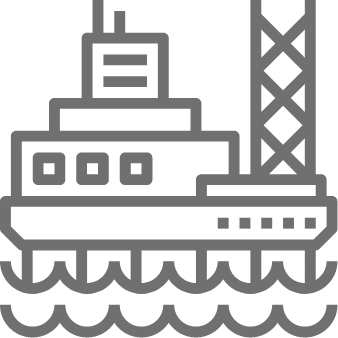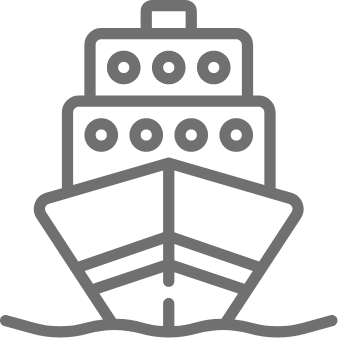RESEARCH & DEVELOPMENT ON
OCEAN SYSTEMS AND SOLUTIONS
The ocean is a valuable resource for the human race. It covers more than 70% of the Earth’s surface, accounts for more than a quarter of the oil and gas extracted worldwide, is a major source of food for the human race, and carries sea trade that accounts for 90% of global world trade. Technological advancement in areas such as artificial intelligence, data analytics, robotics and automation, advanced manufacturing, and materials and energy storage is transforming operating concepts and making the ocean safer and more accessible economically. The pace of transformation, particularly in smart, remotely controlled or autonomous systems, is likely to accelerate in the face of increased demands by the global economy for greater manpower, operational and market resilience in a post COVID-19 pandemic world.
The impact of rising sea levels due to climate change is also expected to drive the demand for resilient, smart and innovative coastal infrastructure adaptable to the threats of climate change and yet able to generate high socio-economic value. They may include mega-scale floating systems that can provide quality living environments for “live, work and play” and host essential utility services such as water and power.
Moving into the future, TCOMS envisages that many physical systems currently operated independently by man would be replaced by smart cyber-physical systems. A much deeper knowledge of the behaviour, response and reliability of the operating systems will be needed to better design future ocean systems and solutions capable of performing in complex and challenging marine environments.
Research & Development Capabilities
A key differentiator of TCOMS is in the development of cyber-physical modelling and simulation, featuring the integration of physical modelling, numerical modelling, smart-sensing, and real time data analytics. This approach will offer tremendous opportunities to advance our understanding of non-linear fluid structure interactions in complex ocean environments. It will also pave the way for the development of intelligent systems that would help transform the ocean economy, especially in the enhancement of efficiency, safety and reliability in harsh and challenging environments.
An anchor research facility of TCOMS is the next-generation Deepwater Ocean Basin (DOB) currently in construction at the National University of Singapore and scheduled for completion in early 2021. The DOB is equipped with state-of-the art wave and current generation systems that could simulate harsh ocean environments, including those in ultra-deep waters. These capabilities are crucial for the testing and validation of innovative concepts including intelligent floating platforms and ships, autonomous systems, marine robotics and subsea systems.
Deepwater Ocean Basin factsheet
| Basin Dimensions | 60m (L) x 48 (W) x 12m (D) |
|---|---|
| Deep Pit Dimensions | Approximately 10m diameter with a depth of 50m |
| Wave Generation System | More than 180 flap-type paddles on two sides of the basin Wave period up to 5s; Wave height up to 1.1m |
| Current Generation System | Six vertical layers of inflow Maximum near surface current = 0.5m/s Variable current profiles – Uniform / Sheared current etc. |
| Instrumentation-cum-Towing Carriage | Maximum speed of 2m/s in the longitudinal direction Towing force of 10 kN |
| Movable floor | Water depth in the main basin can be varied from 0m to 12m Fast repositioning to different elevations |
To carry out high-fidelity, computationally intensive numerical simulations, TCOMS is leveraging on the petascale supercomputing capabilities of the National Supercomputing Centre (NSCC) Singapore. It will also house an on-premise numerical simulation cluster for real-time computation, coupled with the physical modelling system in the basin to enhance prediction capabilities.
Thrust Areas

Marine & Offshore
The Marine & Offshore (M&O) industry has been embracing digital transformation, driven by the rapid growth of digitalisation and also by the need to be globally competitive…

Sea Transport
Around 90% of the world’s trade is transported by ships plying various international and regional trade routes…

Digital Metocean
One key feature of future ocean systems is in the ability to predict the ocean environment through Digital Metocean technologies...
